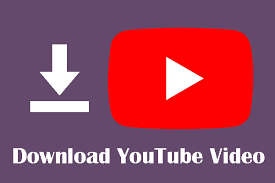The Legal Landscape Surrounding YouTube Downloaders
The legality of using YouTube downloaders to save content for personal use frequently sparks intense debate. YouTube's terms of service prohibit downloading content unless a download button or link is clearly provided by YouTube. This is where the legal ambiguities begin. In regions like the United States, the legality of circumventing technology to download content without explicit permission falls under the scrutiny of the Digital Millennium Copyright Act (DMCA). Essentially, using these tools to bypass YouTube's restrictions could legally compromise users.
Respecting Content Creators' Rights
Content creators on YouTube invest significant time and resources into producing videos, hoping to earn revenue through views and advertisements. When users download videos using tools such as a YouTube downloader, creators might lose potential earnings from the views and ad impressions that would have been generated through YouTube. This financial impact is a crucial ethical concern, as it affects the livelihood of creators.
Personal Use Versus Distribution
While some argue that downloading content for personal use could be seen as a minor infraction compared to distributing it, the ethical considerations remain significant. Downloading a video for offline viewing deprives content creators of control over their work and potentially spreads content to audiences in ways the creator did not intend. For example, if a downloader shares a video with others, it could be viewed by hundreds or thousands more without any benefit or recognition going to the original creator.

Impact on YouTube's Ecosystem
YouTube relies on a complex algorithm that tracks viewer engagement to recommend videos and generate ad revenue for creators. By downloading videos and watching them offline, users disrupt this system. This disruption not only affects YouTube’s operational model but also impacts creators’ visibility and their ability to be recommended within the platform’s ecosystem.
Ethical Use of Downloading Tools
Navigating the ethical landscape requires recognizing the impact on all stakeholders involved. If using a YouTube downloader, consider the following ethical practices:
- Download only when necessary: For example, downloading a video for educational purposes where internet access is inconsistent.
- Avoid sharing downloaded content: Keep downloaded videos for personal use to avoid infringing on copyright laws and reducing potential earnings for content creators.
- Support creators in other ways: If you download content regularly, consider supporting the creator directly through merchandise purchases, Patreon contributions, or simply by watching new uploads on their channel to generate legitimate views.
Educating Users on Ethical Practices
Encouraging ethical use of downloaders involves educating users about the potential harm to content creators and the broader YouTube community. By fostering awareness of these issues, users can make more informed decisions about when and how to use downloading tools responsibly.
Making Ethical Choices with YouTube Downloaders
Ultimately, the decision to use YouTube downloaders should come with a consideration of both legal and ethical implications. Users need to think critically about how their actions affect the creators they enjoy and the platform they use. Making informed, ethical choices helps maintain a healthy digital content ecosystem where creators can thrive and viewers can continue enjoying a wide range of content.
